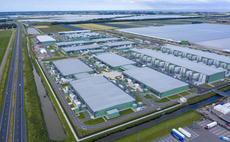Specific mention of IT in draft agreement will commit policy makers to seek technical solutions to reducing emissions
IT should be discussed at Copenhagen, according to the union IT should be seen as key to reducing emissions in any successor to the Kyoto Protocol agreed in Copenhagen this December, according to...
To continue reading this article...
Join Computing
- Unlimited access to real-time news, analysis and opinion from the technology industry
- Receive important and breaking news in our daily newsletter
- Be the first to hear about our events and awards programmes
- Join live member only interviews with IT leaders at the ‘IT Lounge’; your chance to ask your burning tech questions and have them answered
- Access to the Computing Delta hub providing market intelligence and research
- Receive our members-only newsletter with exclusive opinion pieces from senior IT Leaders




















